Student Blog
Classes
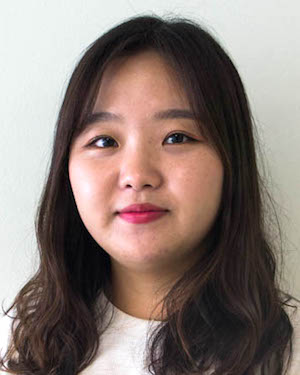
Spring Semester: Second and the last semester ⟩
January 28, 2019, by Goeun
Classes
Since the Post-Professional Master’s program is a one-year program, the second semester which I’m taking now is my last semester! Although it was one of the reasons why I chose the USC Chan Division, it feels so fast since I started the program.
The first semester was pretty tough, getting used to school as well as adapting to new environments. However, I think the Post-Professional Master’s Program is well-structured with curriculum and the Division has been really supportive for international students.
In the fall semester, I mostly took required courses with one elective course, OT 500: Clinical Problems in Occupational Therapy, which helps international students to be eligible to take NBCOT exam. In the spring semester, on the other hand, I mostly take elective courses and two required courses. Speaking of electives, it was really nice as I could choose what I want and interested in, but at the same time, it was really confusing as I wanted to take more than I can.
It was hard to choose, but among all the electives, I decided to take four of them:
OT 574: Enhancing Motor Control for Occupation,
OT 578: Therapeutic Communication: Facilitating Changes in Clients,
OT 583: Current Application of Lifestyle Redesign, and
OT 575: Dysphagia across the Lifespan: Pediatrics through Geriatrics (for the first six weeks).
I chose those courses because some are very new to me, especially the Lifestyle Redesign which is developed in here. I also chose some courses that are a little bit familiar to me as I wanted to learn some perspectives from the US. So far, I’m enjoying the courses. I love that I can have hands-on practices with classmates as well as real patients and I’m looking forward to learning more!
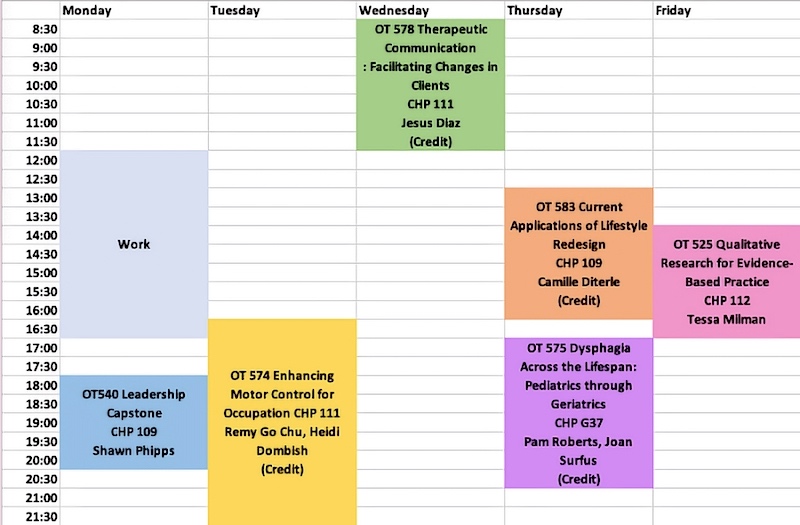
This is my spring semester schedule.
⋯
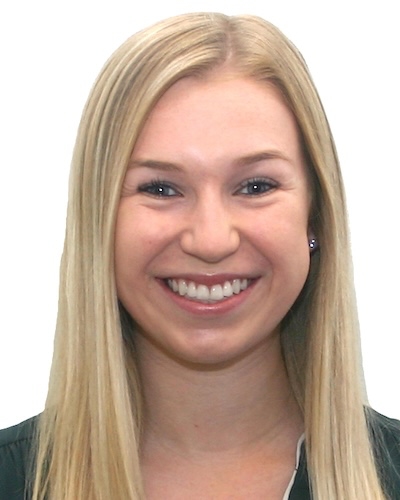
Winter Wrap Up ⟩
December 10, 2018, by Jessica P.
Classes
Every semester as a student, I feel that each semester goes by faster and faster. The weeks tend to fly by and before I know it, it’s the end of the semester. Last night, I turned in my final paper and officially am done with my fall semester. Towards the end of the semester, things tend to get busy with final projects wrapping up, papers to turn in, and exams to prepare for. While it can be overwhelming if you don’t stay on top of things, I find it to be my favorite time of the year. It’s really a chance to reflect on all you have learned and done throughout the semester.
In our OT 501: Adult Physical Rehabilitation last lab, we had an adaptive cooking lab. This was a chance for us to try different adaptive cooking utensils ourselves hands-on! We held a potluck style breakfast and all brought in food to make and eat with different tools.
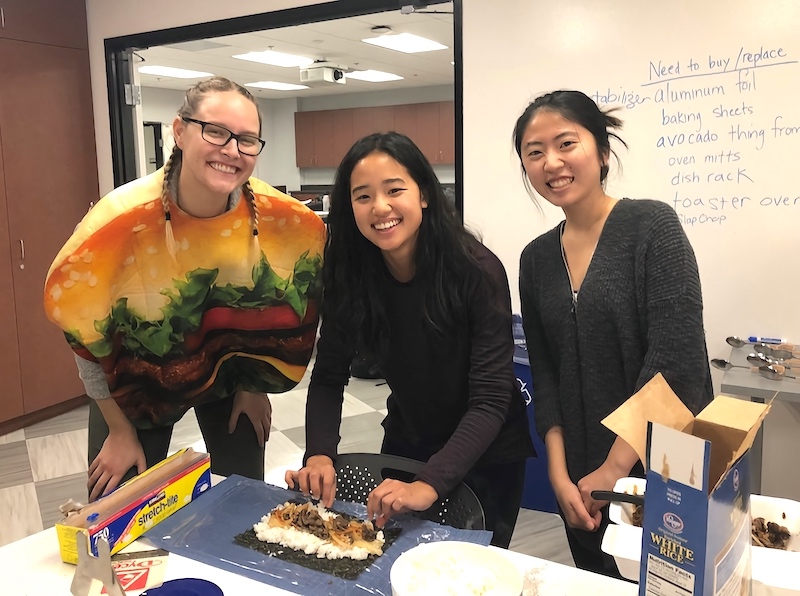
Using a rocker knife to make sushi
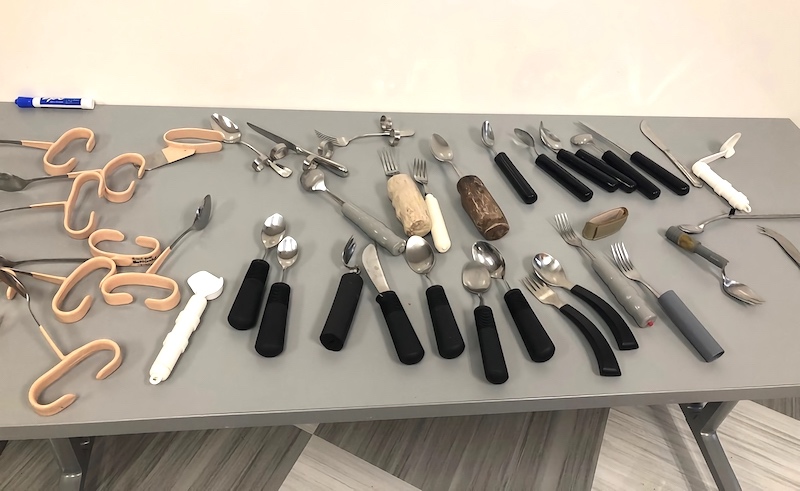
Adaptive cooking equipment
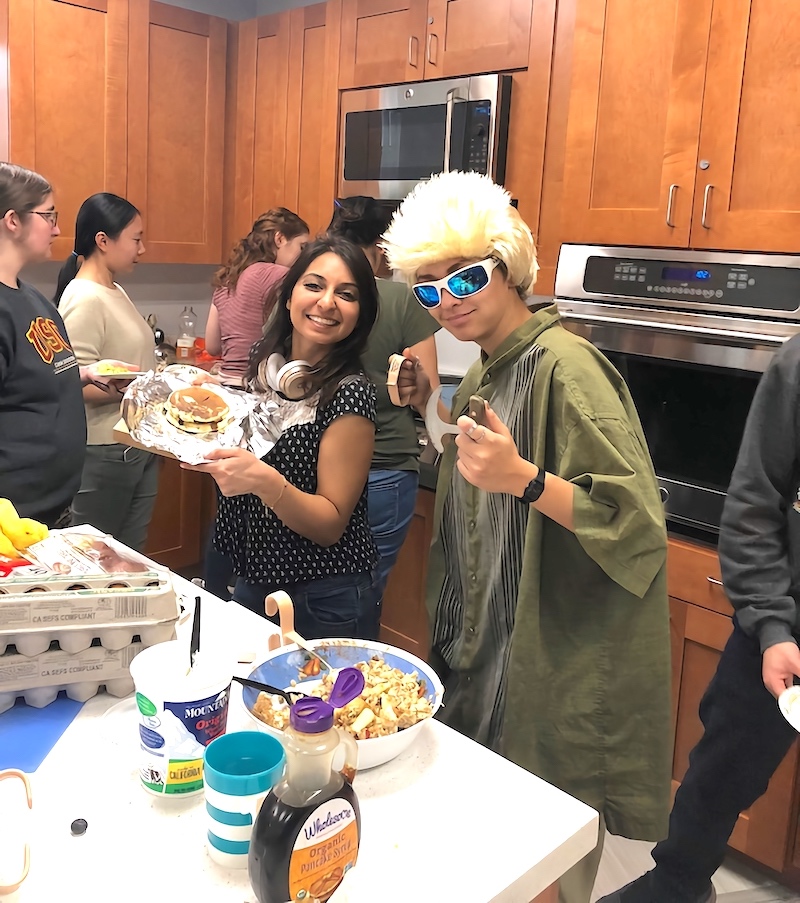
Guest appearance from Guy Fieri in our cooking lab
In OT 537: Occupation-Centered Programs for the Community, we presented our program proposals that we have been developing all semester long. My group and I created a program called “Viviendo con Dolor Cronico: A Lifestyle Redesign Approach to Chronic Pain Management” which is focused on chronic pain in the immigrant population.
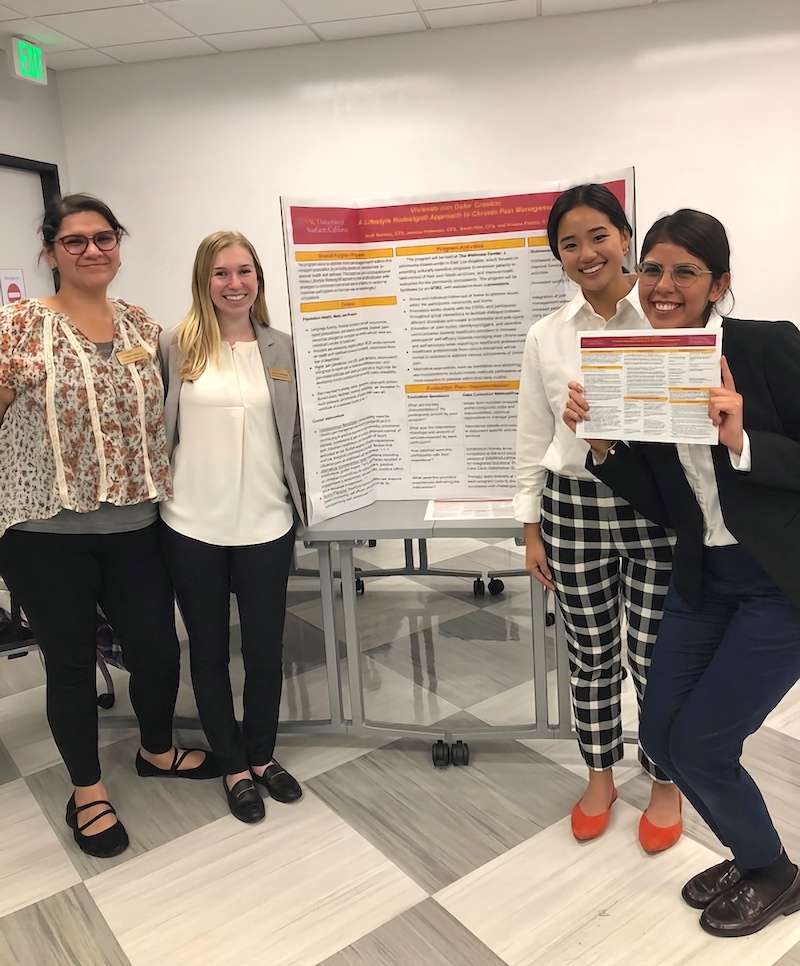
Poster presentations for our community program proposal
Lastly, we had our last class together as an entire cohort. Being together since day 1, our cohort has gone through all three of the immersions together: mental health, pediatrics, and adult physical rehabilitation. Next semester, we no longer will have a class all together as a full cohort as we will be taking different electives in the areas we are individually interested in pursuing.
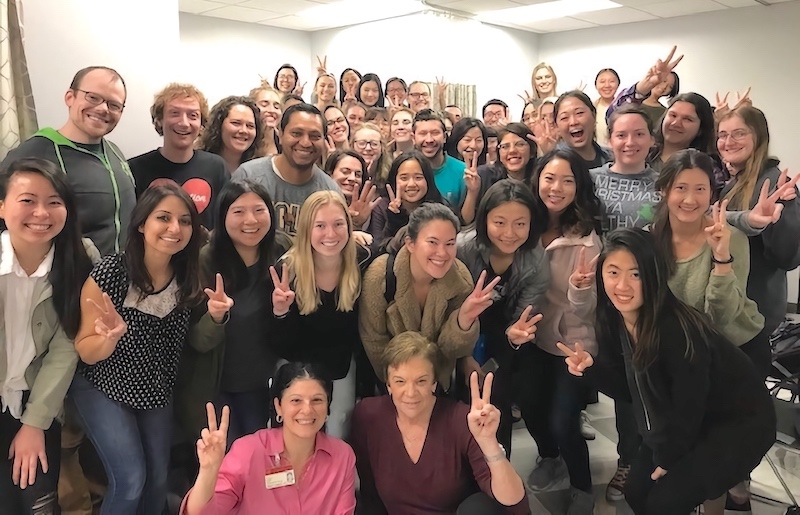
Cohort B Fall 2018
And just like that . . . the semester is over. Soon, I’ll be heading home for winter break to relax and spend time with family (and mostly cuddle with my dogs). I hope you all have a relaxing holiday!
⋯
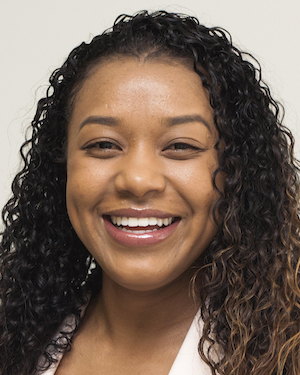
MORELIFE: Preventative Health Access Program — No, Not the Drake Album ⟩
December 7, 2018, by Serena
Classes Diversity
This semester I was enrolled in Occupation-Centered Programs for the Community taught by Dr. Jenny Martinez. In the class I paired up with 3 of my colleagues to create a community project around a topic that interested all of us: access to preventative healthcare. We all had a specific passion for delivering client-centered care, specifically focusing on culturally appropriate interventions for the Latino and Black communities in Los Angeles.
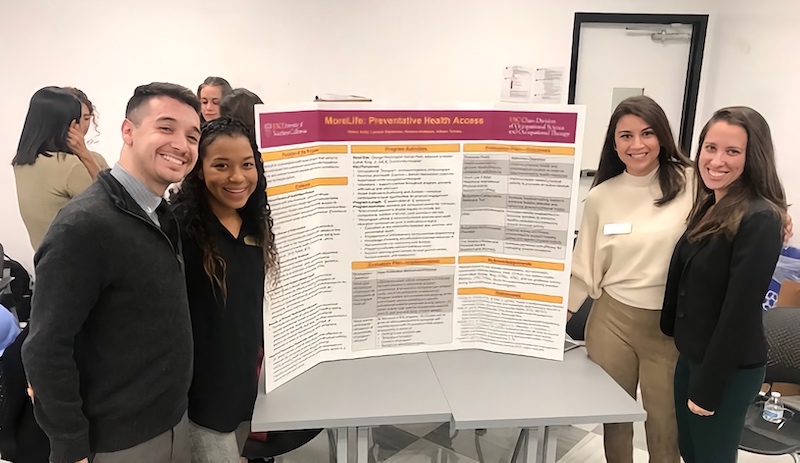
Presenting our project, MORELIFE, at the end of the semester. Working with them was a joy since we all desired to address the current health disparities in Los Angeles.
My team and I created a proposal for our community program, which we called MORELIFE: Preventative Health Access. The proposal included all the necessary components that would be required to start a new service. Thus, over the 16 week semester, we developed a trends analysis, needs assessment, literature review, marketing plan, mock funding request, and program evaluation. At the end of the semester, we delivered a presentation to our classmates, staff, and faculty members in the USC OT program. It may seem like a lot of work because it was a lot of work (lol); however, we received continuous guidance and support from our professor, Dr. Martinez who we met with weekly and other faculty members such as Dr. Stacey Niemiec, who so generously shared her experience in developing a very similar program, ¡Vivir Mi Vida!. Since undergrad, I have always wanted to create and then deliver a community project focusing on health disparities so by gaining these skills I am one HUGE step closer to implementing a program like MORELIFE into society.
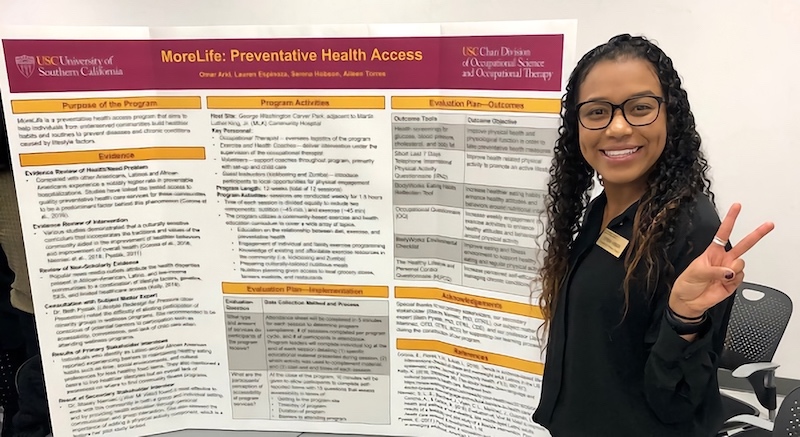
During the end of the semester presentation, I eagerly presented on the program my 3 colleagues and I had been working on for the entire semester.
⋯

Health and Wellness . . . with a little Cardi B ⟩
November 20, 2018, by Serena
Classes Videos
What does a USC OT graduate school class look like? Well let me show you . . .
In our program, it is truly all about work-life balance. As we near finals, our Health and Wellness Professor, Dr. Dieterle created an activity that allowed us all to engage in a novel or relaxing occupation while in class. My classmates and I had the ability to choose two activities to participate in for our 2 hour class. The options were salsa dance, meditation, Yoga, or arts & crafts. As you can see from the video, I selected salsa dance led by two OTD students and a meditation seminar led by Dr. Payne.
In the salsa dance class, the OTD students taught a partner routine. Then we all performed the routine with a partner. My lovely partner of the day was Melissa. Once we became familiar with the routine, we then switched partners so we danced with nearly every person in the room. I was incredibly impressed by my very talented classmates. The OTD students were taking song suggestions (very client-centered) so I requested “Mi Gente” (the remix of course with Beyoncé), “MIA” by Bad Bunny featuring Drake, and “Taki Taki” by Dj Snake featuring Selena Gomez, Ozuna & Cardi B. We also took it back to the early 2000s and listened to “Beautiful Liar” by Shakira and Beyoncé. However, the song of the day was “I Like It” by Cardi B featuring Bad Bunny & J Balvin.
Well now that I have laughed and released some stress in the Health and Wellness course, its time to get back to studying for finals!
⋯

My SChedule ⟩
November 17, 2018, by Jessica P.
Classes Fieldwork School/Life Balance
As an ambassador, one of the most common questions I get from prospective students is “what does your typical schedule look like?” Along with this, people ask if there’s time to work, time for self-care, and balance in your weekly schedule. My fellow ambassadors, Joyce and Evan, recently discussed working and having a baby in grad school. From my personal experience, I think it all has to do with balance.
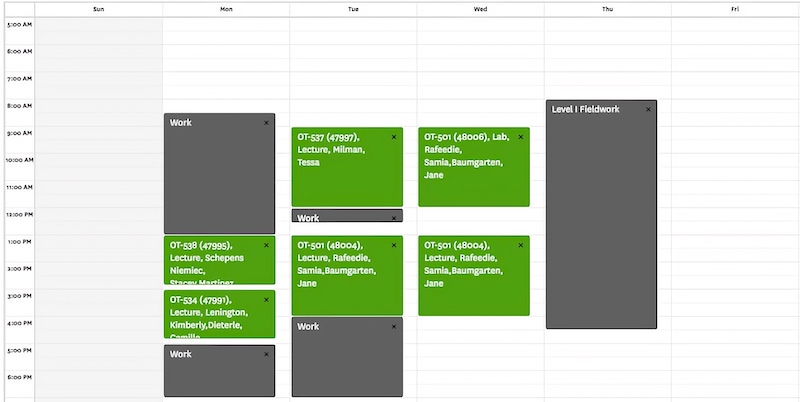
My Fall 2018 schedule
Throughout the program, it is typical to be in the classroom 3 days a week, 1 day in fieldwork, and 1 day off. For the days that we’re in the classroom, it is normal to have class 9am-12pm, a lunch break 12pm-1pm, and then class again from 1pm-4pm. For many people, like myself, a three-hour class may sound daunting, but it’s not. Luckily, all of our professors give us breaks with plenty of time to grab coffee, snacks, or simply take a quick walk outside to get some fresh air. Most of our classes utilize team-based learning, meaning that we usually are not getting a lecture for the entire class time. For example, in my Adult Physical Rehabilitation course we spend class time doing hands-on case applications where we apply what we have already studied on our own.
Everyone’s fieldwork hours will be slightly different, as you will follow whatever hours your clinical instructor works. The hours occupational therapists work may look different in the various settings. For example, my pediatrics level I fieldwork was 10am-6pm as many of our pediatric clients were coming after school. This semester, I just finished my last level I fieldwork at an outpatient lymphedema clinic where my hours were 8am-4:30pm.
As a student ambassador, I have the privilege to work 10 hours a week for the division doing various tasks and events. I have found working 10 hours per week is manageable, but it is something I have to plan for. I know that I have weekly quizzes on Tuesday, so on Sunday’s I study for my quizzes instead of cramming late on Monday night. Many of my classmates also work around 10 hours, doing other student worker positions at USC, such as being classroom assistants or research assistants. We probably would all agree that working that amount is doable, but anything more than that could be stressful on top of your coursework.
One of my favorite days though is my day off. While I love being in the classroom and at fieldwork, I depend on my day off to recharge and prepare for the upcoming week ahead. By having a day off, I think it really allows us to have a balanced schedule with time to have doctor’s appointments, work, catch up readings, etc.
Throughout grad school, there will definitely be weeks where it can feel overwhelming. My best advice is to listen to your own body and what balance looks like for you. You may need a full 8 hours of sleep while some of your classmates seem to fully function off of only 5 hours, but always listen to what is best for you. Transitioning to grad school is definitely a transition into a new role in life, but once you get a hang of the schedule and what works for you — you will own it!
⋯





